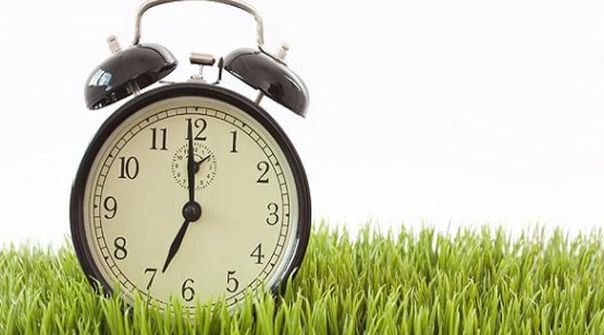Spring forward sounds so chipper. My last blog detailed the fact that I don’t sleep very well. I’m not so sure how much “pep in my step” I will have when we lose that hour of sleep this coming weekend either. But it’s not just the grogginess that comes with the time change. According to statistics, due to the loss of sleep and increased stress from exhaustion, automobile accidents and heart attacks increase dramatically. Scientists have found that on the Monday after Daylight Savings Time begins heart attack rates increase by an astonishing 24 percent. But take heart! These practical tips can help avoid knocking your natural circadian rhythm completely out of whack.
Tips for adjusting to daylight saving time from agingcare.com
- Get some sun: Exposure to natural sunlight helps regulate your body’s natural rhythms. Depending on where you live, the weather may be too cold to spend too much time outside, but you can at least pull up the shade and sit in front of the window for a few minutes.
- Work up a sweat: Engaging in some form of cardiovascular exercise (walking, jogging, biking, swimming) in the late afternoon or early evening may help you fall asleep easier.
- Develop an appetite for good sleep: Eating and drinking can actually disrupt your sleep. Plan to finish meals and snacks 2 to 3 hours before bedtime because digestion wakes up your body. Alcohol and caffeine are also “sleep interrupters” when consumed before bed. Limit caffeine to the morning and finish your alcohol consumption by early evening. Smoking before bed can also stimulate your body and make it hard to sleep.
It’s important to keep in mind that seniors may need more time to adjust to the transition. What is a minor annoyance for most adults could present a significant obstacle in the routine of older adults, particularly those living with dementia or other cognitive impairments. Be sure to check on these individuals and make sure that they are getting adequate sleep and seek medical advice if you notice a problem. Take small steps to prepare for the change for you and your loved ones and enjoy the longer hours of daylight and the warmer days.


